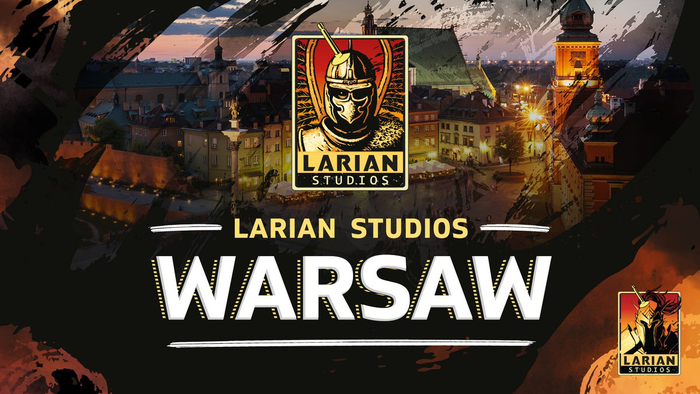Myths, mid-core and mobile: Facebook’s message to developers
At GDC, Facebook's director of game partnerships Sean Ryan talked to Gamasutra about what the social network is doing to attract developers, and make them want to create Facebook games in 2013.

Facebook has big plans for browser and mobile games in 2013, and one of its key aims is to target a demographic that it hasn't particularly chased before: core gamers. Over the course of this year, Facebook plans to back the launch of multiple hardcore-focused games on the social network, as it looks to cater for an audience that has up to this point not been hugely interested in the social games that Facebook has had to offer. At the Game Developers Conference today, Facebook's director of game partnerships Sean Ryan talked to Gamasutra about what the social network is doing to attract developers, and make them want to create Facebook games in 2013. So what are 18 to 35 year old males doing on Facebook? Playing games, apparently [laughs]. Was that surprising when you got data back that said that? Yeah, there’s always that image that we don’t have those users. It’s just that up until now, we didn’t necessarily have the games for those users, and they ways to surface those games. If you look at the three themes, it’s that desktop is healthy and growing, unlike what people seem to think. Also, 2013 is the year of core and mid-core for us. I was waiting for the term 'mid-core' to come up here! Yeah, it’s debatable, the mid-core to core break. But when we look at those types of games, when we look at the openings for FPSes, RTSes, MMOs, MOBAs, RPGs and any acronym you can think of, that’s where we see the next wave of games hitting over the next couple of months. The third [theme] is cross-platform. We’ve seen more examples recently of games getting big on Canvas, then they move to mobile, and it just drives you up through the charts. Candy Crush is the obvious example, but we also see Solitaire Blitz and Dragon City both launch apps in the last week and they just shot up to the top 10 in 30 or 40 countries. What are you doing to attract developers? Why would a developer make a Facebook game today? You make a Facebook game, core or non-core, because we either have a lower cost of acquisition, or a higher LTV [life-time value] because of our re-engagement channels, or both. With core and mid-core games, which use our channels differently, is figuring out new ways to expose users to those games, both for installs and engagement. So App Center, which has now been retooled around strategy, adventure and action games, so they have distinct categories. There are app-to-user notifications, which are aimed primarily at the core. And we’ve done a lot of work with Unity. We have 75 million active users each month with Unity, and that’s growing every day. What are some of the myths that are going around about social games? The first is that desktop or Canvas is dying. The truth is that at every metric level, we’re up. Number of payers is up, we have an all-time-high gamer DAU, ever in the history of the company as of a week ago. We paid out $2 billion to developers last year, and most of our developers had record years. Canvas continues to be, and just desktop gaming in general around the world, is big business, and is up. So we’re going to grow the desktop business. And there’s also a myth that you can’t do core games on Facebook. What we’re doing with our new lineup of games is trying to show a set of killer games that use our channels in a way that’s appropriate for that type of game, not in a way that [the channels] have been traditionally used. So the myths, I think, still are are that desktop is not growing, because it is; that Facebook is only for bubble shooters and casino games -- which it is that, but also more; and third -- what is the value of Canvas in the mobile world? And the answer is that Canvas allows you to iterate much faster, so when you go to mobile, you already have a user base, then the messaging kicks in. And at that point you’ve got a bunch of users who automatically are going to be able to send Android and iOS. They couldn’t before, so you get a much more virtuous circle than just launching on mobile-only. What’s the status of Facebook games and mobile? Obviously, mobile has been a big push for you guys. We have three components to the platform that apply to mobile as well as desktop: Identity, social graph and discovery. Identity is obvious, the social graph is important because you can’t have a social game without a social graph. Really, the biggest complaint from developers in mobile is discovery -- how do you break through, given the amount of apps. That’s where we are focused, both paid and unpaid [apps]. The mobile app install network that we launched in December is doing incredibly well for a wide variety of our partners. And we’re starting to see more organic and viral traffic from News Feed. We sent 263 million clicks to the Apple and iOS stores last month. Hopefully that continues to go up -- it’s up from 175 million a few months ago. In mobile, if you use our platform, you get social graph and identity, you get free distribution through News Feed, and you have the ability to amplify that through paid distribution in a way that’s more effective than what people are used to.
Read more about:
event gdcAbout the Author(s)
You May Also Like













